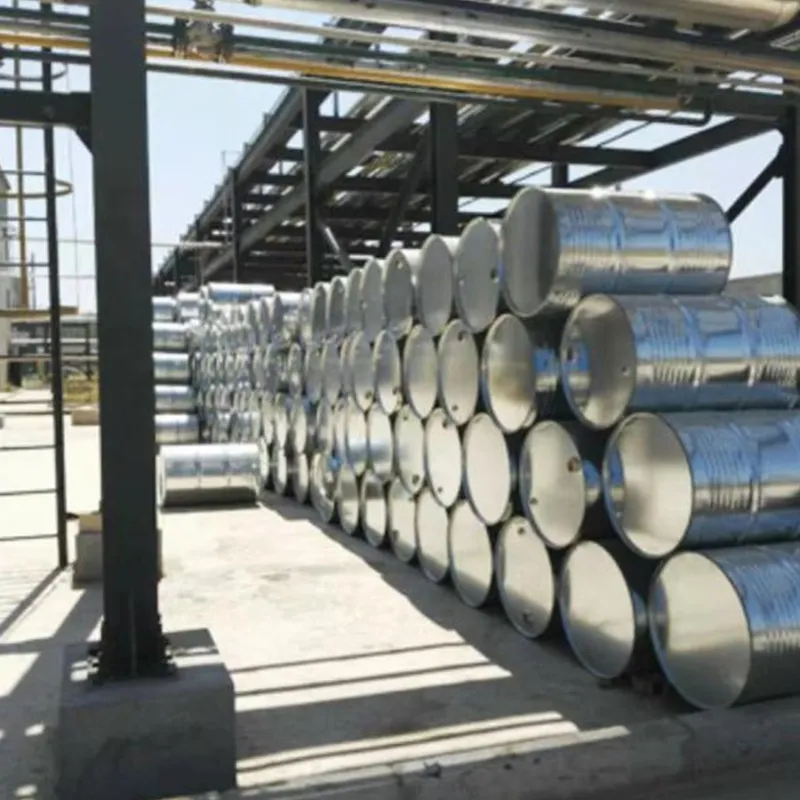
tcca trichloroisocyanuric acid
Understanding Trichloroisocyanuric Acid (TCCA) Properties, Uses, and Safety Considerations
Trichloroisocyanuric acid (TCCA) is a versatile chemical compound that is widely used as a disinfectant and sanitizing agent. Chemical formulas often represent TCCA as C3Cl3N3O3, indicating its complex structure. This compound belongs to a class of chemicals known as chlorinated isocyanurates. Renowned for its effectiveness in water treatment, TCCA boasts a range of applications spanning various industries, from swimming pools to agricultural settings.
Properties of TCCA
TCCA is recognized for its solid-state stability and strong oxidation potential. It appears as a white crystalline powder, with a characteristic chlorine smell. One of the standout features of TCCA is its high chlorine content, typically around 90%. This makes it extremely effective in eliminating bacteria, viruses, and algae, making it an ideal candidate for water disinfection. When dissolved in water, TCCA slowly releases chlorine, providing a continued sanitizing effect.
Applications of TCCA
One of the primary uses of TCCA is in the treatment of swimming pool water. Pool owners favor TCCA due to its high stability and low solubility at normal temperatures, which allows for extended disinfection without frequent reapplication. Its slow-release properties mean that it can maintain chlorine levels for longer periods, ensuring a safe and clean swimming environment.
In addition to recreational water treatment, TCCA is extensively used in the food industry. It serves as a disinfectant for food processing plants and equipment, ensuring that surfaces are sanitized effectively to prevent foodborne illnesses. Agriculture also benefits from TCCA's properties; it can be used to treat irrigation water and to control algae blooms in water bodies, promoting a healthier ecosystem for crops.
tcca trichloroisocyanuric acid

Furthermore, TCCA finds applications in the oil and gas industry as a biocide in water treatment processes. Its strong oxidizing properties help control microbial growth in various settings, ensuring operational efficiency and safety.
Safety and Handling Considerations
While TCCA is an effective disinfectant, it is important to handle it with care. It is classified as a strong oxidizer, meaning that it can react vigorously with combustible materials and should be stored away from heat sources and incompatible substances. Proper personal protective equipment (PPE), including gloves and eyewear, should be worn when handling TCCA to prevent skin and eye irritation.
Environmental considerations are also paramount when using TCCA. Although it is effective in controlling pathogens, improper disposal or overuse can lead to increased chlorine levels in water bodies, which can harm aquatic life. Therefore, adherence to recommended application guidelines and regulations is critical to ensure ecological safety.
Conclusion
Trichloroisocyanuric acid is a powerful and effective disinfectant with a wide range of applications. Its ability to safely sanitize water in swimming pools, food processing facilities, and agricultural settings underscores its value in maintaining public health and safety. However, it is essential to handle TCCA responsibly to mitigate any potential risks associated with its use. By understanding its properties and adhering to safety protocols, TCCA can continue to play a key role in water treatment and sanitation across various industries.
-
Pure Sodium Dichloroisocyanurate Dihydrate | Powerful DisinfectantNewsAug.29,2025
-
Industrial Chemicals: Quality & Purity for Every IndustryNewsAug.28,2025
-
Nitrile Rubber Honoring Strict Production StandardsNewsAug.22,2025
-
Aspartame Ingredients Honoring Food Safety ValuesNewsAug.22,2025
-
Fertilizer for Balanced Plant NutritionNewsAug.22,2025
-
Cyanide Gold Processing with High Purity AdditivesNewsAug.22,2025
-
Formic Acid in Textile Dyeing ApplicationsNewsAug.22,2025
Hebei Tenger Chemical Technology Co., Ltd. focuses on the chemical industry and is committed to the export service of chemical raw materials.
-

view more DiethanolisopropanolamineIn the ever-growing field of chemical solutions, diethanolisopropanolamine (DEIPA) stands out as a versatile and important compound. Due to its unique chemical structure and properties, DEIPA is of interest to various industries including construction, personal care, and agriculture. -

view more TriisopropanolamineTriisopropanolamine (TIPA) alkanol amine substance, is a kind of alcohol amine compound with amino and alcohol hydroxyl, and because of its molecules contains both amino and hydroxyl. -

view more Tetramethyl Thiuram DisulfideTetramethyl thiuram disulfide, also known as TMTD, is a white to light-yellow powder with a distinct sulfur-like odor. It is soluble in organic solvents such as benzene, acetone, and ethyl acetate, making it highly versatile for use in different formulations. TMTD is known for its excellent vulcanization acceleration properties, which makes it a key ingredient in the production of rubber products. Additionally, it acts as an effective fungicide and bactericide, making it valuable in agricultural applications. Its high purity and stability ensure consistent performance, making it a preferred choice for manufacturers across various industries.





